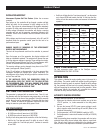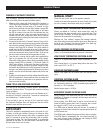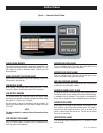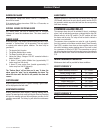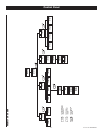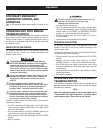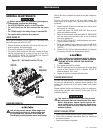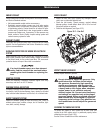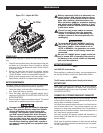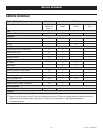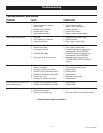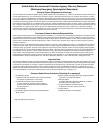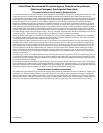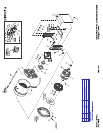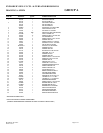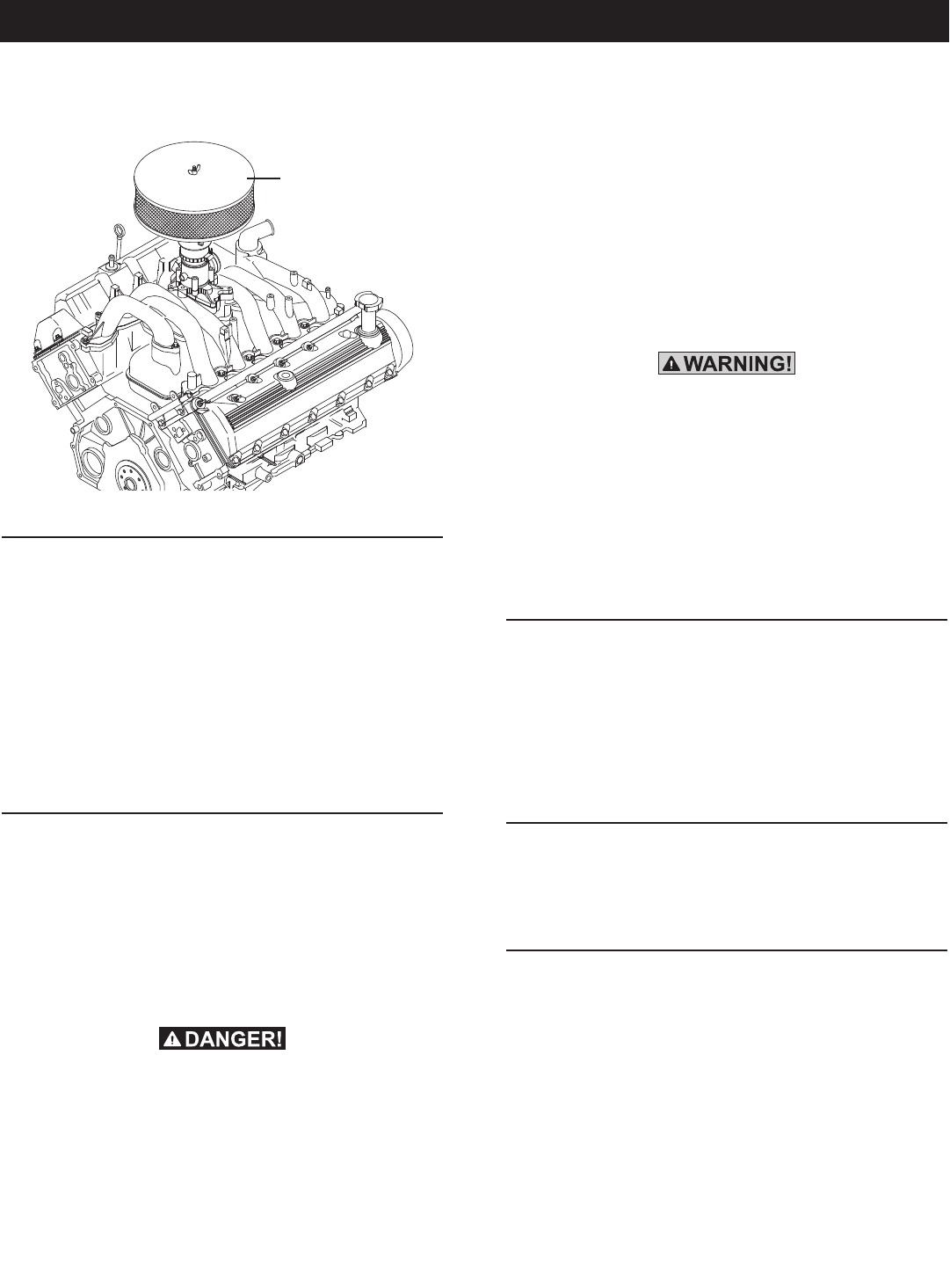
Figure 10.3 – Engine Air Filter
Air Filter
SPARK PLUGS
Reset the spark plug gap or replace the spark plugs as neces-
sary.
1. Clean the area around the base of the spark plugs to keep dirt
and debris out of the engine. Clean by scraping or washing
using a wire brush and commercial solvent. Do not blast the
spark plugs to clean.
2. Remove the spark plugs and check the condition. Replace
the spark plugs if worn or if reuse is questionable. See the
“Service Schedule” section for recommended inspection.
3. Check the spark plug gap using a wire feeler gauge. See the
Specifications section for the required spark plug gap.
BATTERY MAINTENANCE
The battery should be inspected per the Service Schedule section.
The following procedure should be followed for inspection:
1. Inspect the battery posts and cables for tightness and corro-
sion. Tighten and clean as necessary.
2. Check the battery fluid level of unsealed batteries and, if
necessary, fill with DISTILLED WATER ONLY. DO NOT USE TAP
WATER IN BATTERIES.
3. Have the state of charge and condition checked. This should
be done with an automotive-type battery hydrometer.
Storage batteries give off explosive hydrogen
gas. This gas can form an explosive mixture
around the battery for several hours after
charging. The slightest spark can ignite the
gas and cause an explosion. Such an explo-
sion can shatter the battery and cause blind-
ness or other injury. Any area that houses a
storage battery must be properly ventilated.
Do not allow smoking, open flame, sparks or
any spark producing tools or equipment near
the battery.
n
Battery electrolyte fluid is an extremely cor-
rosive sulfuric acid solution that can cause
severe burns. Do not permit fluid to contact
eyes, skin, clothing, painted surfaces, etc.
Wear protective goggles, protective clothing
and gloves when handling a battery. If fluid
is spilled, flush the affected area immediate-
ly with clear water.
n
Do not use any jumper cables or booster
battery to crank and start the generator
engine. If the battery has completely dis-
charged, remove it from the generator for
recharging.
n
Be sure the AUTO/OFF/MANUAL switch is
set to the OFF position, before connecting
the battery cables. If the switch is set to
AUTO or MANUAL, the generator can crank
and start as soon as the battery cables are
connected.
Be sure the 120VAC power supply to the bat-
tery is turned OFF, or sparking may occur at
the battery posts as the cables are attached
and cause an explosion.
BATTERY REPLACEMENT
NOTE:
Unit DOES NOT include battery.
When supplying or replacing the battery, the recommended num-
ber and type of battery is listed in the Specifications Section.
NOTE:
The BCI number should be located directly on the battery.
BATTERY FLUID
Check battery electrolyte fluid based on the Service Schedule.
Fluid should cover separators in all battery cells. If fluid level is
low, add distilled water to cover tops of separators. DO NOT USE
TAP WATER IN BATTERY.
CLEANING THE STATIONARY EMERGENCY GENERATOR
Keep the generator as clean and as dry as possible. Dirt and
moisture that accumulates on internal generator windings have an
adverse effect on insulation resistance.
Periodically clean generator exterior surfaces. A soft brush may be
used to loosen caked on dirt. Use a vacuum system or dry, low
pressure air to remove any accumulations of dirt. The generator is
housed inside an all-weather enclosure, clean the enclosure with a
soft, damp cloth or sponge and water.
Once each year have the generator cleaned and inspected by a
Service Dealer. That dealer will use dry, low pressure air to clean
internal windings.
Finally, have the insulation resistance of stator and rotor windings
checked. If insulation resistances are excessively low, the genera-
tor may require drying.
10-3
Maint029 Rev. A 10/10
Maintenance



